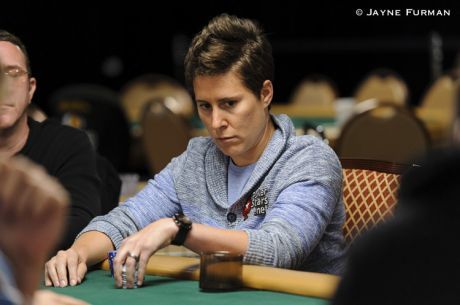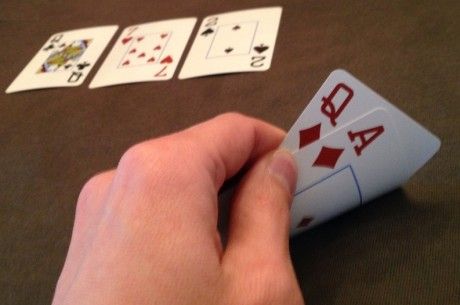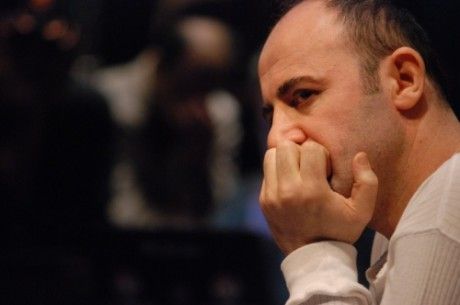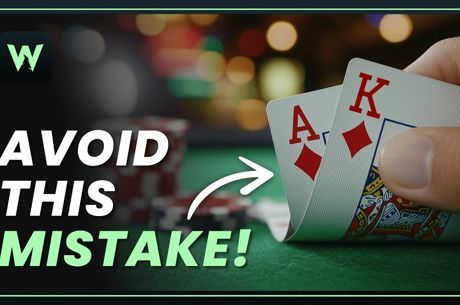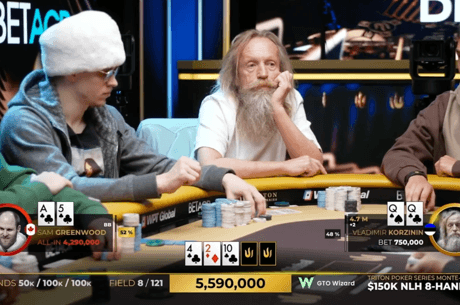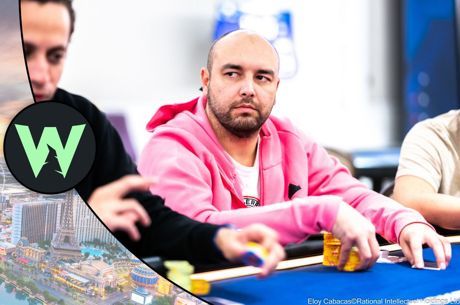Worth the Struggle: Why You Should Be Fighting for Blinds and Antes in Tourneys

In a famous passage from The Theory of Poker, David Sklansky characterized poker as a “struggle for the antes.” If there were no forced bets, you would be laying infinite odds by entering the pot, so those forced bets are necessary for the game to exist. In theory, at least. I remember once being involved in an incident at Foxwoods Resort Casino where, after a complicated procedural mistake, a hand of no-limit hold’em was played without any blinds. That didn’t stop six people from putting money in the middle.
But that’s not just a theoretical point about poker — it’s also a good starting point from which to deduce winning poker strategies. Your stack is a tool to use to win what’s in the pot at the start of the hand. Analogously, it is also a tool to use to win what’s in the pot at the start of other betting rounds, too (that is, before the flop, turn, and river in hold’em). Your stack has other functions as well, but that is a central one — a means to earn more chips.
This understanding is especially important in tournaments for at least two reasons.
First, the stacks are shorter in tourneys than they are in cash games. That reduces the risk involved with entering the pot with a sub-premium hand. With deep stacks, you are often going to lose money after the flop if you play Kx9x against a decent player. With shallow stacks, this is less true, because the playing advantage that premium hands have against you only extends as far as you are deep. You won’t face many tricky decisions in 200-BB pots if you only have 40 BBs to start the hand.
Second, tournaments usually have not only blinds but antes after the first few stages. That means that there’s more in the pot to begin the hand, and whoever wins the struggle for the antes gets a bigger prize.
Tournament poker, then, is what you get when you take a game that is fundamentally a game of winning forced bets and then make it even more advantageous to go after the antes. This is why I once said on that “tournaments are about winning the pot before the flop.” Once the antes kick in, if you can win more than your share of preflop pots, you’ve already accomplished much of what is necessary to succeed in tournaments.
What follows from the fact that you ought to fight for the blinds? One obvious conclusion is that you should consider open-raising with some fairly weak hands, especially from middle and late position and especially when you have some extra reason to think your opponents will fold.
There are also some less obvious consequences, though. The familiar tournament strategy of open-shoving preflop with stacks as large as 15 or 20 big blinds is tightly related to this basic observation: the first priority, if you are going to play, is to win the pot, and maximizing the preflop bet maximizes your chances of doing that.
There are other more subtle ways of winning lots of pots preflop, too. Playing even more aggressively than usual with very strong hands achieves this goal indirectly, because it makes your aggressive play with other hands more threatening. Passing up some marginal slow playing opportunities can be correct in tournament play not only for the sake of winning the current pot but also for the sake of winning other pots easily. Finally, it is important to make things difficult for opponents sitting to your right. If you reraise them frequently and call their raises with hands that will play well after the flop, you discourage them from fighting for the pot with marginal hands. The more often the pot is folded to you, the more often you’ll win it.
Learning poker is a difficult process of figuring out the complex strategies entailed by simple insights. As you learn tournament poker you will come to study lots of situations, both before and after the flop. In many cases, you will understand and remember those strategies better if you keep in mind that they derive from the basic goal of winning what is already in the pot before the cards are dealt.
Be sure to check out Nate and Andrew Brokos on the Thinking Poker podcast, and for more from Nate visit his blog at natemeyvis.com.
Get all the latest PokerNews updates on your social media outlets. on Twitter and find us on both and !

